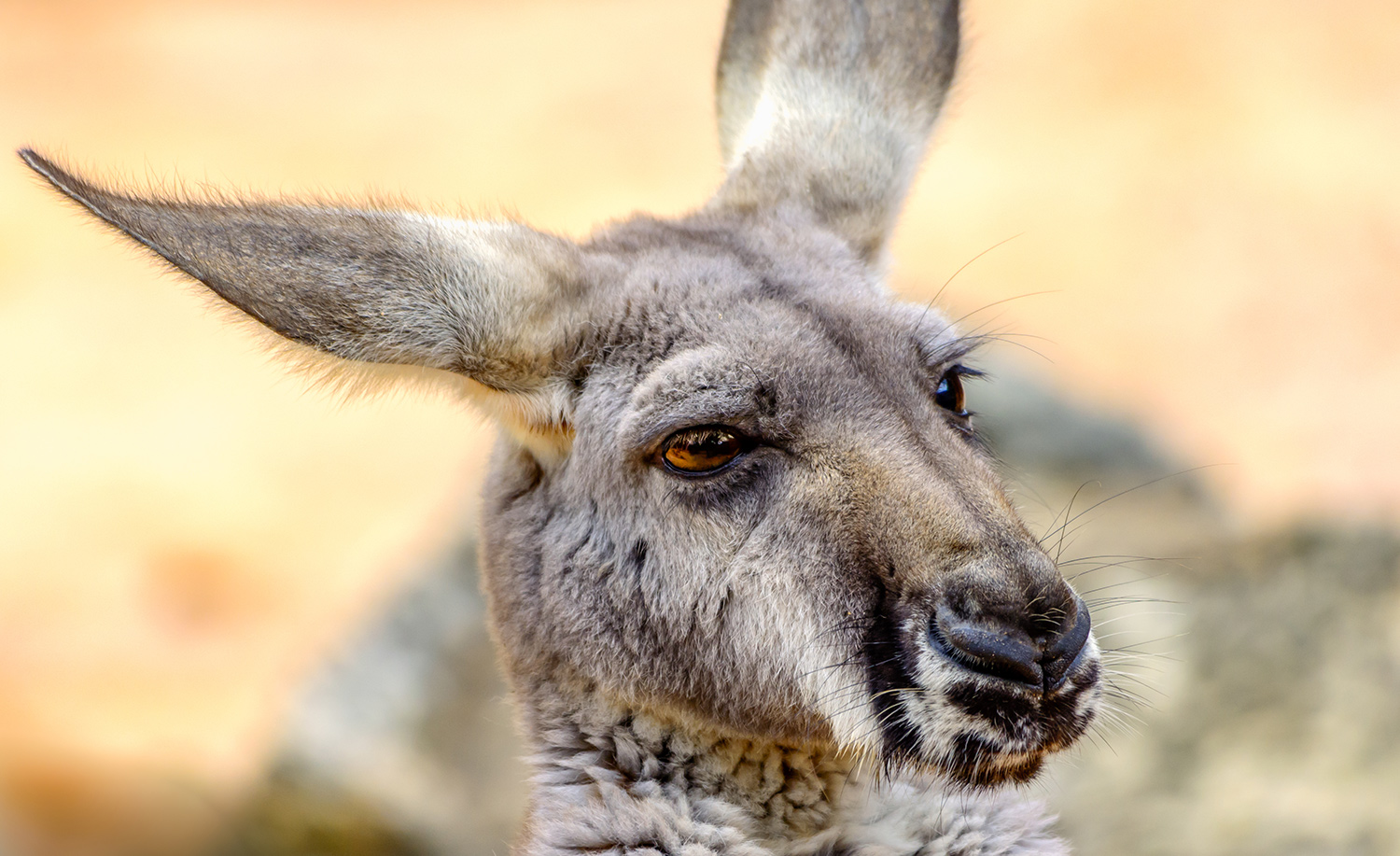“A kangaroo court,” U.S. Secretary of State Mike Pompeo called The Hague’s International Criminal Court on June 11, shortly after President Trump imposed on it sanctions for its allegedly discriminatory treatment of the United States and Israel. I don’t doubt the allegation, especially when it comes to Israel. But where, I found myself wondering, does the expression “kangaroo court” come from? I must have seen and heard it hundreds of times without stopping to look into the matter.
Now I have, and I’ve discovered an odd thing. Although the key to the history of the phrase “kangaroo court” has long been common knowledge, no one seems ever to have used it to pass through the door that it opens. No one, that is, before President Trump came along and I wrote this column. If you find that hard to believe, I do too.
The common knowledge is that the phrase “kangaroo court” first occurred in print in English in 1853, in a book entitled A Stray Yankee in Texas. It’s a work cited by every reference to the subject. Its author was the well-known humorist Samuel Adams Hammett (1816-1865), who wrote under the pseudonym Phillip Paxton. Born in Connecticut and raised in New York City, Hammett spent several years as a young man working in Texas, which was then still an independent republic that had not yet joined the federal union, and he later wrote about the experience.
A Stray Yankee in Texas is a delightful book—if you’ve bothered to read it. Astonishingly, however, this is something that no commentator on the origins of “kangaroo court,” and of its now archaic synonym “mestang [mustang] court,” appears to have done. The result has been some silly speculations, such as the compendious Random House Historical Dictionary of American Slang’s conjecture that while “The original allusion [in the word kangaroo] is now obscure,” it may derive from the “the kangaroo’s appearance [that] seems to defy the laws of nature.” Even the language investigators Philip Gooden and Peter Lewis, while dismissing such unlikely theories in their 2012 Idiomantics: The Weird and Wonderful World of Popular Phrases, simply add one more of their own when they say:
Most explanations owe more to ingenuity than to good sense. The fixed stare of the kangaroo might be compared with the gaze of a judge; or the shifting of a court from place to place is like the hopping of a kangaroo, and so on. A more plausible connection is to the unpredictable and even uncontrollable nature of the beast—an idea reinforced by the parallel references to “mestang,” . . . the wild horse of the American prairies.
Unpredictable and uncontrollable nature of the beast indeed! One would think that Texas in the 1850s was brimming with kangaroos whose nature every Texan was aware of.
Well, then, as the rabbis would advise us to do, neytey sefer v’neḥzey—let’s have a look at the book itself. And more precisely, at chapters 20 and 21 of A Stray Yankee in Texas, which begin:
If any one would see the backwoods’ character in perfection, let him visit some frontier country town during “court week.” One may ride through and through a thickly-settled county, from north to south, and from east to west, until he delusively imagines he has seen every face in it, and that he can count the settlers. But let him be in “town” on the first day of court, and he will soon find how deceived he has been with regard to the population. He will see them pouring in from every imaginable direction, by every possible road. . . . The lawyers from the other counties, who scenting the spoil from afar, have just dropped in for their share; district attorneys and state attorneys, judges and jurymen, criminals and witnesses, parsons and gamblers, horse-jockeys and hard-fisted planters; peripatetic pie and gingerbread vendors . . . all swell the throng and fill up the town, even to overflowing.
“Court week” was the annual occasion on which traveling circuit courts pitched camp in a locality and dealt with all the cases that had accrued there during the year. Since it drew large crowds, various amusements were offered the visitors after the daily court sessions were ended. One of these, Paxton relates, was for the many lawyers who flocked to the town “to assemble in some sufficiently capacious room, and . . . institute mock proceedings against one of their number for some ridiculous, imaginary offense.” He then goes on to describe such a mock trial that he witnessed, held in “a log hut containing one room and some dozen beds, upon which, lying, sitting, or in an intermediate posture” were some 30 members of the legal profession.
This “Mestang or Kangaroo Court,” as it was called, began its proceedings, Paxton writes, when “by a unanimous vote, Judge G.—the fattest and funniest of the assembly—was elected to the bench.” Taking command, the judge announced:
Gentlemen of the Bar, Jury, Witnesses, Criminals, Constables, Clerks of the Court, and Prosecuting Attorneys—It has been a source of deep regret to me and doubtless to many of you that our bar . . . has of late fallen into disuse, owing to the want of criminal fines properly imposed, whereby the pockets of the bar-tenders and throats of our honorable body have suffered an unprecedented dryness.
Punning on the double meaning of “bar,” Judge G. explained that the purpose of the trial about to take place was, while “suffering no criminal to go unpunished” and “no innocent to escape conviction,” to “heap up fines to be liquidated in liquors.” After imposing a few of these on several boisterous courtroom spectators, he appointed a “high sheriff,” who in turn selected a jury, brought out the imprisoned defendant, “the youngest, most correctly attired, and by far the finest looking member present,” and had the court clerk read the indictment. This accused the defendant of kissing an old black woman on the cheek—and before I go any further, let me assure my readers that there isn’t a whiff of racism or sexism in any of it. As recalled by Paxton, who may have been taking notes, the indictment read, in a parody of legal language:
At the special court of Kangaroo County, begun and holden in the very extensive city of Kangaroo, . . . the Jurors for the Mestang Republic on their oaths present that John Smith, of no particular place, calling himself a gentleman, although no one believes him, did, somewhere in the vicinity of the last “cotton-scraping time,” there and thereabouts, and not much matter when, with a pair of instruments called, known, and described in vulgar parlance as “lips,” being the labial protuberance of the human face divine (any one, however, who might call the said John Smith’s face divine, if not quite a fool, must be at least six degrees on the other side of idiocy), inflict upon the right cheek of a certain female colored person of the age of seventy, there or thereabouts known to the community in general as Polly, a kiss of about the size of a dollar, or perhaps a dollar and a half, or perhaps two dollars, thereby injuring the feelings, compromising the character, and undermining the health of the said Polly.
Several witnesses then testified to having seen Polly, who was John Smith’s laundress, emerge from his lodgings in a state of distress, and several others described “the excessively delicate condition of her health since the incident.” Next, defendant Smith took the stand to proclaim his innocence. Although the charges against him, he declared, wiping his wet eyes with a handkerchief, were “the first rude blight that has fallen upon my budding fame,” he was sure that the bud would be “refreshed by my fast, fast falling tears and shall rejuvenate to its primeval luster.”
“T’wont,” Paxton records a spectator calling out. “Salt water ain’t good for plants.”
Drying his eyes, the defendant now dropped a bombshell. He had been asleep in his lodgings, he said, when, woken by a sudden noise, “I sprang up in affright and behold, it was Judge G. saluting [kissing] my washerwoman! The sufferer, taken at surprise by the rude assault, rushed from the apartment. The culprit quaked with fear, waddled towards the bed, and ducked under it to hide his diminished head. I now call upon Tobias Wilkins to prove the truth of my statement.”
Tobias Wilkins took the stand and confirmed helping to pull the shamed judge from under the defendant’s bed. And Paxton concludes his account:
After another speech or two, the judge charged the jury, bearing down upon the prisoner ferociously and ordering them to give him the benefit of the most severe sentence in their power. The jury, after a moment’s whispered consultation, announced by the foreman that they had found a verdict.
JUDGE: “What say you, gentlemen? Guilty or not guilty?”
FOREMAN: “We find your Honor to be guilty of piracy upon the high seize [sic!], having plundered a smack. . . . You will, therefore, please put your old fur cap upon your head and sentence yourself to pay for all the fluids at the bar, to which we are about to adjourn.”
And so off for drinks at the judge’s expense the court of Kangaroo went and Chapter 21 of A Stray Yankee in Texas comes to an end.
It is, as I’ve said, wonderfully told, and what is perfectly clear from it all is that the court took its name from the fictitious city and county of Kangaroo in which it convened. They were called that because a place named Kangaroo sounded comical to its hearers, just as place names like Kalamazoo and Booger Hole and Okefenokee Swamp strike us as comical, too. There is nothing “obscure” about it and it had nothing to do with the looks or behavior, real or imagined, of kangaroos. Or, for that matter, of mustangs, with which Texas teemed.
Whether it was Paxton’s book alone that first popularized the expression “kangaroo court” outside of Texas, or whether it also spread through other channels, I don’t know. That’s something still to be looked into.
Lexicographers and etymologists, take note.
More about: English, History & Ideas







